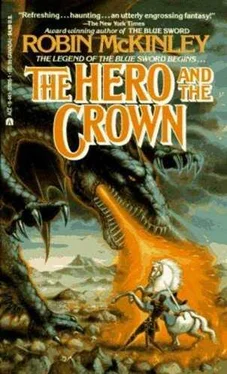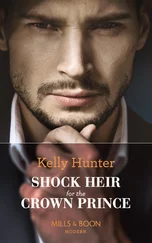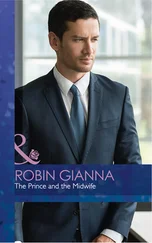“How did they know?”
Arlbeth sighed. “I didn’t ask. Several of them met us as we rode east toward the City, and we didn’t wait for details. Look between Talat’s ears; he knows all about this sort of thing; all you have to do is sit up. We’re just your honor guard.”
“But—” she began, but Arlbeth turned away and, indeed, as they neared the great gates, he and Tor dropped back, and Talat pretended to prance, but only pretended, so as not to joggle his rider. She did as her father told her, sitting straight and still in the saddle, and looking not quite between Talat’s ears where she might see something, but at them, and at his poll, where his forelock grew and lifted in the breeze when he tossed his head. The streets were quiet, but many people watched them as they rode by; and from the corners of her eyes she could see many of their audience touching the backs of their hands to their foreheads and flicking out the fingers in the Damarian salute to their sovereign but Arlbeth rode at his daughter’s heel. A breeze wandered among them and riffled Aerin’s ruined hair, and the sunlight shone pitilessly on her scarred face; but the audience was still silent, and motionless but for the right hands and the flicking fingers.
When they came to the courtyard of the castle-, rows and rows of the king’s army stood in a three-sided square, leaving a space large enough for the honor guard to file in behind the king’s daughter when Talat came to a halt. Before them on the ground lay Maur’s head, and around the head more ash fell and collected in little pools. She blinked at the trophy someone else had brought home for her. The skull around the empty eye sockets was now burnished bare and clean; and the bone was black. Her eyes trailed slowly down the long nasal bones and the ridged jaw, and she realized that much of the bone was showing; shreds only of the tough skin remained, and as the wind sidled along the head and flicked bits of it loose, they fell to the ground as ash. The parted jaws with their black grin leered at her.
She held to Talat’s mane with her right hand, and slipped slowly down his side, her left foot touching the ground first. Then Arlbeth was beside her, and he led her past Maur’s grinning skull, and the soldiers parted in a silent whiplash, a drill maneuver, and they came to the castle door; and then he turned to her and picked her up in his arms and carried her down the long corridors and up the stairs to her room, and to Teka.
There were healers in plenty who visited her after that; but none of them could do better for her burns than the kenet, and her ankle was healing of its own, and they could do nothing for her cough, nor for her trouble breathing. She spent her time in bed, or in the deep window seat that overlooked the rear of the courtyard, toward the stables. Hornmar led Talat under her window occasionally, and while she could not call down to him, it comforted her to see him. She tried to eat for Teka’s sake; she hadn’t realized before that there was no flavor to her food since she had tasted dragonfire, but she learned it now. And she took the dragon stone from the pocket she had made from a knot of cloth, and laid it on the table near her bed; it seemed as though when she stared at it, it grew brighter, and red fire shivered deep inside it.
At last she grew restless, as she had in the dragon’s valley, and she began to creep about the castle, and visit Talat in the stables. He had his old stall back, and Arlbeth’s young Kethtaz had actually been moved one stall down to give his predecessor pride of place. Talat was very conscious of eminence regained. She investigated his croup carefully with her fingers; the weals from the dragonfire had disappeared, although she could still see them, for the hair had grown back lying in the opposite direction from the hair around them.
Her own hair was growing in vigorously if unevenly, and Teka one day combed it out from a center spot at the top of her skull and cut in a neat arch around her face, for it was no longer curly. Aerin looked at herself in the mirror and laughed. “I look like a boy.”
“No,” said Teka, sweeping up the trimmings. “You look like a girl with a boy’s haircut.”
Aerin stared at herself. She had avoided mirrors as she had avoided everyone but Tor and Teka and her father, and the healers they sent, who could not be got rid of; and now that she finally dared herself to look in a mirror she was surprised at what she saw. The shiny scars across her left cheek—and a few flecks, like freckles, on the other side of her face, where the hot dragon blood had splashed her—were visible but not disfiguring. Her scalp was still tender on the left, and she had to use her hairbrush tentatively; but her hair was coming back as thick as before, although it was several shades darker and almost straight. But her face was drawn and pale, except for two spots of red high on her cheekbones; and there were lines on her face that had not been there before, and her eyes looked as old as Arlbeth’s, “I look a lot more like my mother now, don’t I?” she said.
Teka paused with the cloth she’d used to gather the hair clippings dangling from her hand. “Yes,” she said.
The first morning she came to breakfast with her father again. Tor was there too, and was not able to stop himself from jumping out of his chair and hugging her. He was so glad to see her walking, and with her hair grown out and combed smoothly around her face, that he almost managed not to think about how little there was of her to hug, how frail she felt; how each breath she took seemed to shake her, like a wind through a sapling. She smiled up at him, and he saw the red spots on her cheekbones, but he looked only at her smile.
She asked about Nyrlol, and Arlbeth said that he had been humble—no, craven—in a way Arlbeth had disliked even more than Nyrlol’s usual overbearing bluster; it was as if the threat of secession had never happened. Nyrlol had seemed nervous, looking behind himself too frequently, starting at sounds no one else heard. He apologized, and claimed that he was not sleeping well; that there was too much raiding on his borders and he seemed able to do too little about it. Arlbeth, with the army at his back, had made the correct noises, and after a visit of the shortest possible length consistent with courtesy, headed for home, leaving a division of his army behind to help watch the Border near Nyrlol’s land for him. Nyrlol had seemed honestly grateful, and that made Arlbeth even more uneasy; but there was nothing more he could do.
“I have no doubt that we were lured away from the City just then for a purpose,” said Arlbeth, “and the best I could do then was return as quickly as the horses could run. I had almost forgotten Maur.”
“I hadn’t,” murmured Tor, and his eyes flicked up to Aerin’s face and away again, and she knew that he had guessed she would ride back with the messenger and face the Black Dragon alone.
Arlbeth frowned into his cup. “But if the only purpose was to set the Black Dragon upon us, why then does the feeling of a dark fate still cling around us? For it does.”
“Yes,” said Tor.
There was a silence, and Arlbeth said at last: “We can only hope that Aerin-sol has so disturbed their plans”—and by their his auditors knew he meant the Northerners—”that we will have time enough to prepare, and strength enough in reserve.”
Neither Arlbeth nor Tor ever told her what they had thought when they first saw her, bent and burnt and coughing blood onto Talat’s white neck; and Aerin did not ask. All else that was said on the subject occurred that same morning: “I owe you a punishment for carrying the king’s sword without the king’s wishes, Aerin-sol,” her father said gravely.
She had been thinking much of this herself lately, and she nodded. “I await your command.”
Читать дальше












